Rob Lloyd: 10 Things You Need To Know About Cisco
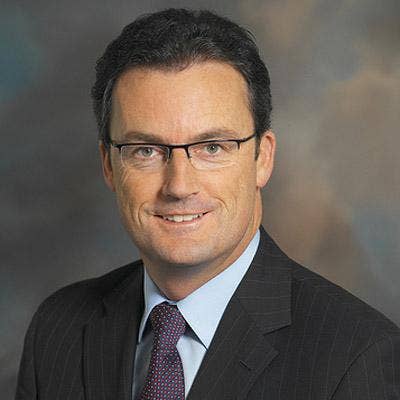
The Heir Apparent?
Rob Lloyd, Cisco's executive vice president, worldwide operations, is an executive widely viewed by Cisco insiders to be on the short list to succeed Cisco Chairman and CEO John Chambers. Lloyd joined CRN for an exclusive interview this month to look at how Cisco's ongoing restructuring will benefit solution providers, why a Cisco partnership makes VARs more profitable, and what Cisco has that its competitors don't.
Here are 10 key things partners need to know about Cisco.
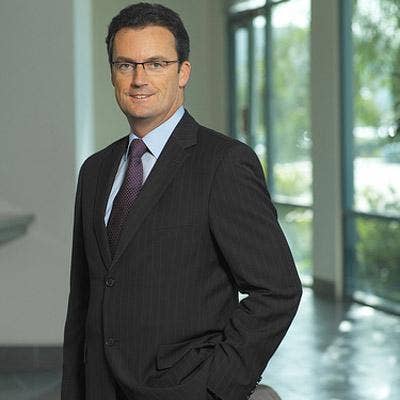
1. More Resources Coming To Cisco Partners
Cisco's overall goal, Lloyd said, is better resource allocation and making better use of the teams and intelligence it already has. That said, Lloyd attempted to assuage fears that Cisco's restructuring would mean fewer resources for the Worldwide Partner Organization. As Cisco shifts to a sales model called "partner-led" for a majority of its worldwide, channel-facing accounts, Lloyd said more resources, not less, are headed for the Cisco channel.
"My expectation is that more of those resources will be in the field teams that face our partners every day and engage in our partners, but I'll be very candid that we will put more into marketing programs over the next year. More into systemic investment to support the relationships with partners, their sales teams and their engineering teams and more into helping them build their practices," he said.

2. Cisco Will Move Faster
One of Cisco's goals, Lloyd said, is to simplify how it makes decisions internally so it can be a faster, more nimble partner for solution providers.
"Our partners expect consistency," he said. "They want to see our processes implemented and our decision making quicker. We've done a lot of things so that as we enter the next year, the next fiscal year, we're going to be faster in decision making with more accountability, less people who need to be in a room to make a decision, and more people who will be empowered to say 'yes.'"
Overall, said Lloyd, accountability will be with fewer executives and fewer will be involved in decisions, especially in competitive situations.
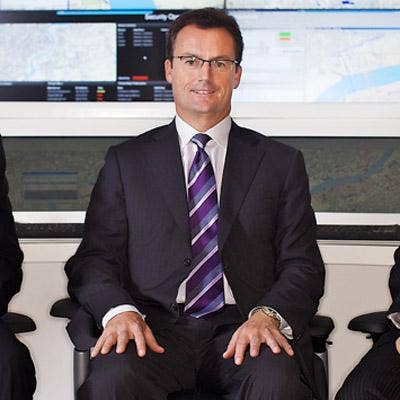
3. Cisco's Switches Are Better
Cisco's switching business has come under fire as of late, following two successive quarters of year-over-year quarterly revenue declines in the switching portfolio. Lloyd defended Cisco's switches, identifying three reasons they're a better buy than HP's or any other competitor's: Cisco's custom ASICs offer better investment protection than merchant silicon, Cisco's switches enable network functions that go far beyond commodity-grade connectivity, and the industry -- including the channel -- is deep with Cisco knowledge, he said.
"The infrastructure -- the ecosystem of systems and expertise is around Cisco. Think of a switch: three years from now, who's going to be supporting that switch? Is it the same company, the same person? If you look at that underlying capability in this industry, it's a Cisco capability. That's a huge differentiation," he said."
{C}

4. Cisco Partnership Is More Profitable
Lloyd's response on why a Cisco partner is more profitable than a solution provider who aligns closely with HP: "It's a simple formula -- I'd rather sell something for $100 for a certain percentage of margin than something at $60 for the same percentage of margin, because the unit of work I had to deliver with my sales force, with my infrastructure, with my services capabilities, I'd like to maximize that, the gross profit dollar that came from that unit of work. I'm confused as to how you make more money if the value proposition is to sell less dollars at the same margin, or 'we'll give you a rebate to make it try to look [like] more.' I'm confused, because the last time I checked, more dollars and more margin helps me build a profitable business and helps me get a return on resources that are always scarce and limited. I have limited availability to invest in a sales team, limited availability to run a service practice. We've built the collaborative approach to each of those things. I don't know how selling something at 70 percent of what I was selling at a dollar helps make me more profit. I'm sorry. Someone's going to have to explain it to me."

5. Architecture Wins The Day
With Cisco, argued Lloyd, solution providers elevate their conversations around point products and networking to conversations around architecture and business transformation. That's the key Cisco advantage, he said.
"I don't think there's anyone out there in the partner base that can argue [against] the value of the Cisco architectural approach and [wouldn't say that] the size of the conversations they're having has expanded in the last three years," he said. "[Partners] are able to have a two-times bigger conversation on what they're selling than the point product servers, or the point product end-of-rack or point product top-of-rack switch they sold two years ago. So this is a good thing for profitability. And if you want to go out there and say to people that there's another way to look at it, then I guess, I don't understand it."

6. Cisco Wants Partners To Lead On Services
A Cisco difference is the amount of services opportunities the networking titan sets aside for partners, Lloyd said.
"We build practices to accelerate the adoption of converged data center, private cloud, collaboration, virtualization, expert solutions that our customers can see and demand," he said. "[Partners] need to help build those practices they take into their services and into their businesses. That's the Cisco model. We're not out there at the end of the day competing with them and creating a hard deck of customers: 'You can go out and work with these players and we're going to take these ones direct.' That's not the Cisco model."
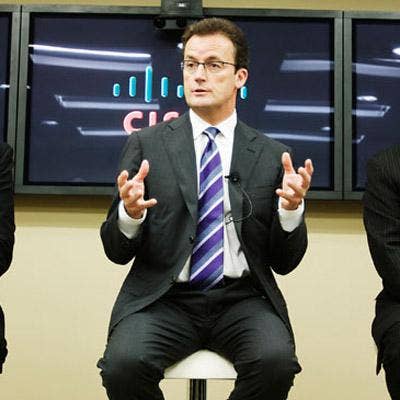
7. With Cisco, You Have Options
Top solution providers have a few things in common, Lloyd said: great leadership, an execution model with a focus, and applying those things to the channel opportunities available to them.
"I look at a combination of great management, solid business skills, forward thinking, and then a focus," he said. "We give our partners options to go deep, with master certifications, or go broad, with Gold and Silver and Premier certifications, across the board. Our partners have options to execute the business model they choose and in the future, that's going to be the model that wins. Those we hear complaining typically lack some of those success factors."
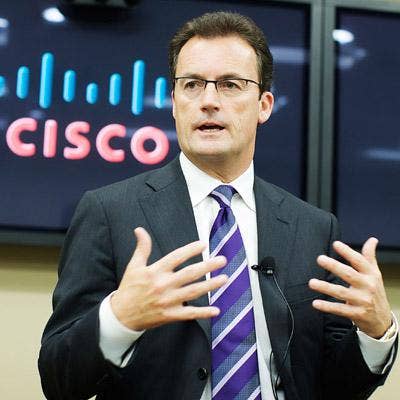
8. Cisco's Channel Leadership Team Is Here To Stay
Although the reporting structure for channel sales has changed slightly in each of Cisco's sales theaters, Lloyd said the fundamental roles of Keith Goodwin, senior vice president, WWPO, and Edison Peres, senior vice president, worldwide channels, won't change.
"They're building incremental focus on supporting our partner-led initiative around the world, and they'll be working very closely with our marketing organization," Lloyd said. "Keith and his team and Edison will be pulling more resources to support our field efforts around a partner-led go to market model."
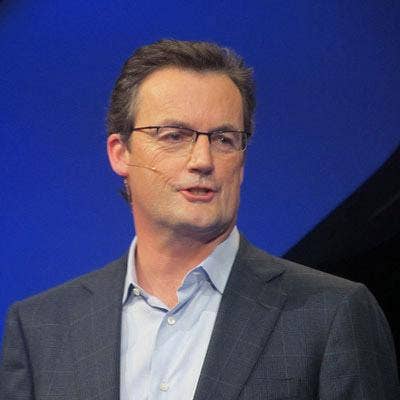
9. Cisco Is Among Data Center Elite
Lloyd acknowledged the accolades for Cisco's Unified Computing System (UCS), including that Cisco is now the No. 3 vendor in x86 blade servers, according to IDC.
The reason for Cisco's triumph, Lloyd said, is that it saw virtualization as a pervasive force and wanted to use server and virtualization technology in a way that more comprehensively embraced the network. Two years after competitors scoffed at Cisco as a server vendor, Cisco is indeed a full-fledged server and data center player.
"It worked well for our partners and changed the conversation about integrating these formerly siloed stacks," Lloyd said. "The market is now starting to copy the architecture, which we think is a good compliment to what we've driven. We're used to that."
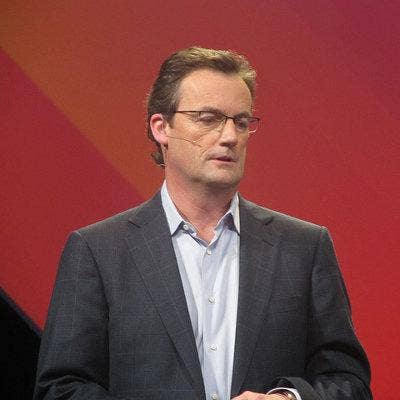
10. We're Working On VCE
Responding to partner complaints that VCE -- the joint venture between Cisco, EMC and VMware -- and sales of pre-configured, pre-tested Vblock data center architectures are too difficult to manage from a channel perspective, Lloyd said he's on the case.
"I'm personally involved in that simplification, and the short answer is we need to simplify the way our partners are able to access and employ Vblocks," he said. "Pure and simple."

Additional CRN coverage of Rob Lloyd and Cisco's plans to invest more in the channel:
Cisco Sales Boss: Restructuring Means More Channel Resources, Faster Decisions
Q&A: Cisco's Lloyd Promises A Simpler Cisco
Cisco Gets Back To Business